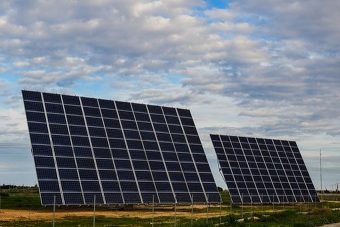
The United States Energy Department’s National Renewable Energy Laboratory has updated its analysis of electricity generation technology costs, and it’s good news again for wind and solar, which come out cheapest alongside natural gas.
The National Renewable Energy Laboratory (NREL) has released its 2017 Annual Technology Baseline (ATB), the third edition of its highly respected analysis of current and projected energy technology generation costs, focusing primarily on utility-scale electricity generation technologies — although, this year NREL have also included distribution-level solar PV technologies as well.
“In addition to aggregating the most reliable, timely cost and performance data spanning the full range of energy technologies, the Annual Technology Baseline highlights key trends and makes projections out to 2050,” said NREL Senior Analyst Maureen Hand. “For energy analysts and others tasked with communicating relevant electricity technology cost and performance trends that have a bearing on energy markets, the ATB serves as an indispensable go-to resource that greatly facilitates and streamlines the work involved.”
Maybe of most interest from this year’s ATB is the fact that solar PV capital costs have continued to decline recently and are only expected to continue to decline. Similarly, onshore wind capital costs have also fallen while capacity factors have increased — higher megawatts at cheaper rates. Both of these trends are expected to continue, serving to further increase the attractiveness of solar and onshore wind, and making them increasingly cost-competitive — especially against natural gas combined cycle plants in the near term.
Source: cleantechnica.com


